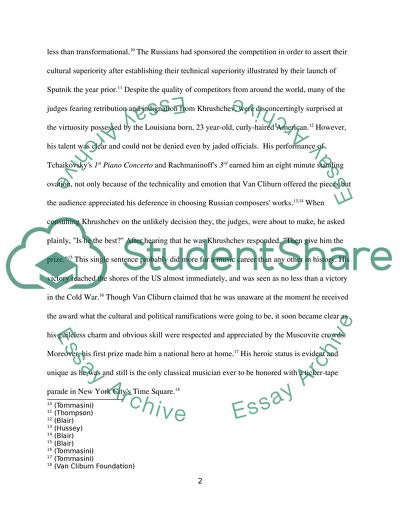The Texan Who Conquered Russia Article Example | Topics and Well Written Essays - 500 words. Retrieved from https://studentshare.org/history/1505754-history-essay-subject-van-cliburn
The Texan Who Conquered Russia Article Example | Topics and Well Written Essays - 500 Words. https://studentshare.org/history/1505754-history-essay-subject-van-cliburn.


